Behind the News
Behind the News: All the backstories to our major news this week
Published
9 months agoon

Over the past week, there were lots of important stories from around the African continent, and we served you some of the most topical ones.
Here is a rundown of the backstories of some of the biggest news stories in Africa that we covered during the week:
Nigeria’s president addresses citizens as cost of living crisis intensifies
Nigeria’s President, Bola Tinubu, in a nationwide address on Monday, reiterated that his economic reforms were targeted at a lasting legacy for the country despite current hardship, and added that it was in the interest of the country that fuel subsidy be discontinued and other fiscal policies be implemented.
Meanwhile, news also broke on Monday that Tinubu named the head of Nigeria’s Financial Reporting Council as a special investigator of the Central Bank of Nigeria (CBN) and other state-owned organizations. According to the letter, weekly reports from the investigator to the president were required.
Some of the CBN’s recent policies have been enmeshed in controversies. It announced new designs of the N200, N500, and N1,000 notes in December but its implementation launched an era of cash scarcity.
At a meeting in Abuja on Friday, Tinubu confirmed to World Bank chief, Ajay Banga that “a thorough forensic examination is happening at the Central Bank (of Nigeria)”.
Beyond the cash scarcity controversy, Nigeria’s central bank under the suspended Godwin Emefiele kept an unstable Monetary Policy Rate which was believed to be unrealistic and counterproductive.
The bank was also notorious for getting involved in duties outside its constitutional monetary duties. Under its development finance initiatives, it was keenly involved with the disbursement of loans for the Agribusiness/Small and Medium Enterprise Investment Scheme with little involvement from the Agricultural Ministry or the Bank of Industry.
Perhaps, the biggest of the controversies was Emefiele’s supposed political ambition to become Nigeria’s president during the 2023 poll. While he did not expressly announce the plan to run for a political position, the streets of Abuja, Nigeria’s capital, were adorned with posters and branded vehicles with Emefiele’s face, with a plea for votes during the ruling party’s convention last year. The controversial CBN governor gave credence to the news of his political ambition when he, through his lawyer, Mike Ozekhome, urged the court to issue an interim order stopping the Independent National Electoral Commission and the Attorney-General of the Federation from disqualifying him from participating in the primary election of his preferred political party.
Meanwhile, Emefiele is currently in the custody of Nigeria’s secret police over charges of illegal possession of firearms. It is yet to be seen if the ongoing audit and investigation of the CBN would birth fresh charges against him.
Reactions, sanctions trail Niger coup
The last has not been heard of the recent political crisis in the Niger Republic, the latest junta-run state in the West Africa subregion, after presidential guards under the leadership of General Abdourahmane Tiani ousted President Mohamed Bazoum in a coup.
Regional bloc, ECOWAS last week threatened to apply penalties, including force, on Niger if the coup leaders did not return Bazoum within a week of last Sunday. Defence chiefs of its member states also met to explore options, fuelling speculations of likely forceful intervention.
As some Western states like the United States and France have withdrawn aid, regional powerhouse Nigeria has disconnected Niger’s electricity supply. Niger is one of the world’s poorest nations and depends almost entirely on foreign aid for its annual budget. The Netherlands on Friday also announced an end to direct cooperation with Niger.
Meanwhile, ECOWAS’ threat to forcefully remove the junta and reinstall Bazoum has also divided opinion across board, particularly in Nigeria, the “leader of ECOWAS.” Its Senate has refused to grant the Nigerian president, who appears to have favoured having boots on the ground, the go-ahead for Nigerian Nigerian soldiers to be deployed as part of a regional force.
African states, particularly Niger’s neighbours under military juntas, notably Mali, Burkina Faso, and Chad have all rallied around the new military leadership while others like Ghana and the Benin Republic have sided with a diplomatic approach to solving the crisis.
The Niger coup brings to the spotlight France’s continued role in its former colonies as a wave of anti-France movement is observable in all military-run states in the sub-region. Meanwhile, ECOWAS ultimatum for Bazoum’s return ends today but there has been no recent statement from its leadership.
BRICS states take positions as Johannesburg summit draws close
During the week, news broke around two major states of the global emerging economy group, BRICS. First, sources in the Indian government revealed that Prime Minister Narendra Modi was not likely to physically attend the summit scheduled for Johannesburg, South Africa.
It is believed that India’s growing relations with the United States and other Western nations have created unease about its role in organizations like the BRICS and SCO, which are dominated by China.
Modi’s position follows a similar position by Russia’s Vladimir Putin whose potential attendance at the summit had been a subject of diplomatic frenzy after the International Criminal Court (ICC) placed an arrest warrant on him over the invasion of Ukraine as pressure was mounted on South Africa to have him arrested should he visit.
Meanwhile, China and Russia are anxious to explore BRICS enlargement during the summit. Some African countries have expressed interest in joining, but India appears to have reservations about the idea.
Later in the week, Brazilian President, Luiz Inácio Lula da Silva, who has a strong history with African states, expressed support for the inclusion of more countries in the BRICS group which currently consists of Brazil, Russia, India, China, and South Africa.
South Africa, the only African state in the group, will host the 15th BRICS Summit at the Sandton Convention Centre in Sandton, Johannesburg, from 22 to 24 August 2023. Egypt, Ethiopia, and Algeria have all formally expressed interest to join the group.
Fresh allegation of sexual abuse rocks Zambian women’s football
For the umpteenth time, Zambian women’s national football team coach, Bruce Mwape, has been hit with a sexual abuse allegation. This time, he is accused of “rubbing his hands over the chest of one of his players” during a training session in New Zealand on July 29.
Zambia qualified for the World Cup for the first time in their history when Bruce Mwape took over as coach in May 2018. He managed some level of success with the team and changed the team’s playing strategy.
However, the Football Association of Zambia (FAZ) said in September 2022 that it had opened an inquiry into claims of sexual assault. A source quoted by the Guardian (UK) said, “If he [Mwape] wants to sleep with someone, you have to say yes, it’s normal that the coach sleeps with the players in our team.”
The FAZ said at the time that it had received no official complaint, but had opened an investigation, adding that “we consider these allegations very serious”.
The latest episode of the assault allegedly happened at the ongoing Women’s World Cup in Australia and New Zealand. The world football governing body, FIFA, which confirmed the incident in a statement issued on Friday, said it was investigating an official complaint about Mwape conduct.
“A complaint has been received,” a FIFA spokesperson told journalists when the question was put to him.
Mwape was repeatedly asked about those allegations at the World Cup but he denied any wrongdoing and insisted they were “fake”.
You may like
-
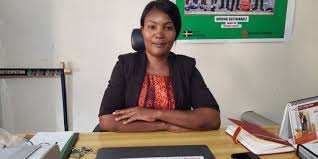

Conservationist, Kearns, names intolerance and digital media abuse as threats to media freedom
-


Behind the News: All the backstories to our major news this week
-


Intel Liftoff Hackathon 2024 calls for applications from African AI startups
-


Former Zambian captain Rainford Kalaba discharged from hospital after near-fatal accident
-


‘Cyber Act fails to protect the vulnerable,’ Student demands media inclusivity for persons with disabilities
-
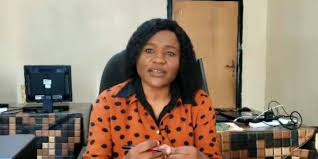

Media polarisation blamed for biased coverage, civil society leader calls for mindset shift
Behind the News
Behind the News: All the backstories to our major news this week
Published
2 days agoon
April 28, 2024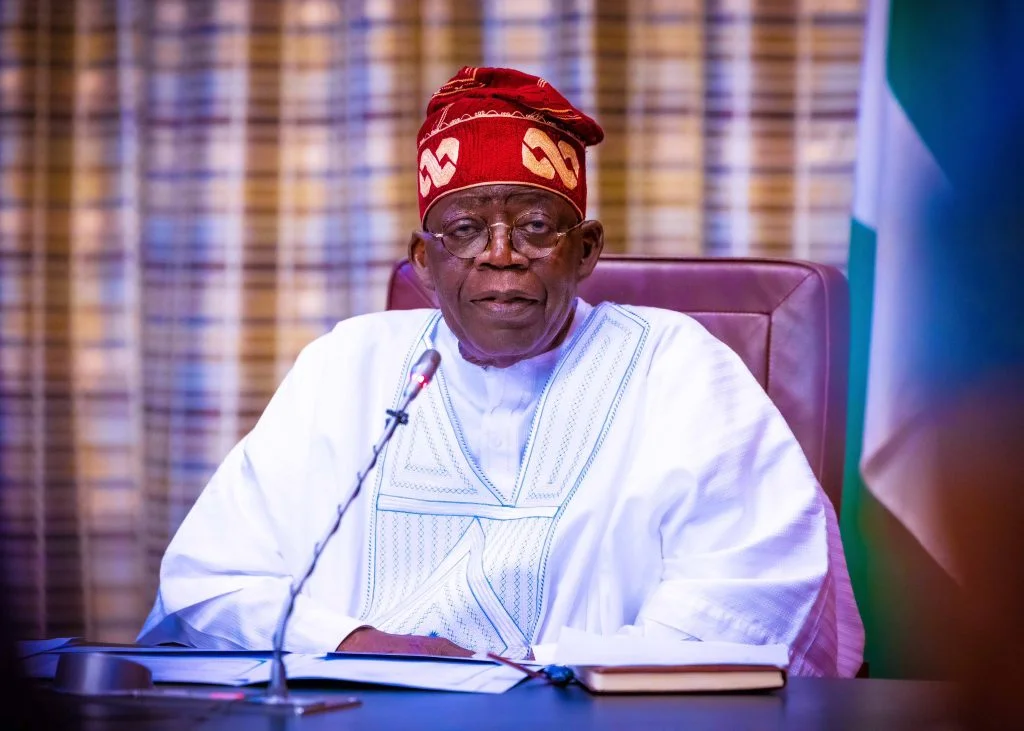
Over the past week, there were lots of important stories from around the African continent, and we served you some of the most topical ones.
Here is a rundown of the backstories to some of the biggest news in Africa that we covered during the week:
1. Renewed Hope: Tinubu’s regular sing-song and the sad reality of Nigeria
During the week in review, Nigeria’s President Bola Tinubu was once again at his rhetorical best when he pronounced the all the tough policy decisions and reforms he has undertaken since coming into office almost a year are have been in the best interest of Nigerians and the good of the country.
Tinubu who spoke during a bilateral business session with Dutch Prime Minister Mark Rutte at the Hague in the Netherlands, said every of his decisions were taken with the interest of his fellow citizens at heart.
He reiterated that his policies which have caused pains and anguish for Nigerians were in their best interest.
“I am a determined leader of my people. I am ever ready to take tough decisions in the best interest of the people, even if with initial pains,” Tinubu said.
“I have and will continue to take the difficult decisions that will benefit our people, even if there is short-term pain,” he added.
But beyond the regular promises of better days ahead by Tinubu and his team, the reality on ground in the country does not seem to align with so much optimism.
The first sign that things were going to be tough was when Tinubu pronounced the end of fuel subsidy in his inaugural address to the nation on May 29, 2023, without as much of a plan to ameliorate the anticipated economic crisis that was to follow.
Despite later attempts to provide some succour and buffers to cushion the effects of the subsidy removal, things have gone from bad to worse with the cost of living rising through the roof.
Inflation has gone up to an all time high of 30.20% according to the Nigeria Bureau of Statistics while prices of basic goods have gone beyond the reach of the average Nigerians, many who find it difficult to provide for their families.
But to President Tinubu, the pains and hardship Nigerians are currently going through will soon be a thing of the past because, according to him, his “tough policies” would yield positive results in the end.
“We have gone through the worst of the storms. I am unafraid of the consequences once I know that my actions are in the best long-term interests of all Nigerians,” he posited.
Nigerians are indeed waiting patiently for the fulfilment of these promises and are looking forward to a time they will go back to living a normal life again!
2. Discriminatory Chinese supermarket meets its match as Nigerian govt shuts mall
A Chinese supermarket located in the heart of Abuja, Nigeria’s capital, ran into hot water when the Federal Competition and Consumer Protection Commission (FCCPC), shut it down following allegations of discrimination against Nigerian shoppers.
Before the action of the government agency, a report had indicted that the supermarket located within the premises of the China General Chamber of Commerce in Abuja, was in the habit of barring Nigerian citizens from shopping in the mall.
Following the exposè which came with video evidence and investigations carried out by the FCCPC turned out to be true, officials of the agency promptly moved in and shut down the mall.
Director for Surveillance and Investigation of FCCPC, Boladale Adeyinka, who led the team, said they took the action was in response to a viral video showing Nigerians being discriminated against and not being able to get into an Abuja supermarket.
“The essence of the surveillance and investigation that we conducted today is to verify the allegations and the content of that viral video,” she told journalists during the exercise.
That was not the first time foreign business ventures have discriminated against Africans in their own country by refusing them their services.
A few years ago, a Chinese restaurant in Lagos was in the news for refusing to serve a Nigerian couple and it took the intervention of the state government for normalcy to return to the outfit after some Nigerian youth decided to vent their anger on the eatery.
Many Chinese, Lebanese and other companies run by foreigners in Nigeria have been found to discriminate against their Nigerian staff and customers but as usual, the powers that be have always turned a blind eye to such allegations, largely because the business owners have their plugs in the right places while the victims are always at the lower rung of the society.
3. Runaway Binance executive reportedly nabbed in Kenya
It was reportedly a bad day in the office for an executive director of global cryptocurrency firm, Binance Holdings Limited, Nadeem Anjarwalla, who had escaped from lawful detention in Nigeria, as he was arrested in Kenya.
Anjarwalla, a British-Kenyan citizen was arrested on arrival in Nigeria on February 26, along with another Binance official, Tigran Gambaryan, on allegations of tax evasion, money laundering and other charges.
But on March 22, Anjarwalla made an audacious escape from a guest house where he and Gambaryan were being held and was promptly declared wanted with the Nigerian authorities engaging the services of Interpol to help track him down.
The manhunt for Anjarwalla was ended when he was arrested in his hideout by a combination of Kenyan police and operatives of the Interpol.
The Kenya Police Service, in a statement confirming the arrest of the fugitive, said the fleeing Binance executive was arrested in “conjunction with the International Criminal Police Organisation (Interpol) and moves were being perfected for his extradition to Nigeria.
But beyond the arrest of Anjarwalla and the embarrassment it caused the country’s security agencies, a lot of questions have arisen from the episode.
Many Nigerians have continued to wonder how he managed to escape from the so-called safe house he and his colleague were being held.
How could Anjarwalla stage such an escape without the active connivance of some security officials who must have had their palms greased?
How did he manage to get a replacement passport to leave the country since his original passport had been seized by the Economic and Financial Crimes Commission upon his arrest?
Questions, and more questions have continued to rise and Nigerians are waiting for answers, if they will come at all.
4. Zambian CSO blames media polarisation for biased reportage
The Executive Director of a Zambian civil society organisation, Chama Mwansa, has blamed the polarisation of the media for biased coverage and reportage in the country.
Mwansa who is the ED of the Chandarika Women and Youths Foundation, in an interview with Zambia Monitor, said the media was balkanized between private and state-owned media outlets which has led to a bias in news coverage.
“The media plays a crucial role in society. Media freedom allows for comprehensive coverage of various perspectives, whether from the opposition or the ruling party,” she said in the interview.
She also harped on the importance of media freedom, freedom of speech, and digital rights in promoting social and economic development, and emphasized on the importance of media partnerships in facilitating coverage of events.
Mwansa’s observations on the polarisation of the media industry in her country can also be replicated in many African countries where the media is gagged and practitioners are made to look like the dregs of the society.
In many African countries, journalists are seen as dangerous species with many of them treated with disdain. Many journalists in different parts of the continent have been abducted, brutalized and killed for just doing their jobs which have constantly raised the question on the safety and freedom of journalists.
5. Al Ahly, Esperance in clash of titans for CAF Champions League trophy
For the fourth straight seasons, two of Africa’s most successful clubsides, Al Ahly of Egypt and Esperance of Tunisia, will clash in the final of the TotalEnergies CAF Champions League scheduled for next month.
Al Ahly which is the current holders of the title and their long-standing rivals Esperance, booked their places in the final in dramatic fashions to earn their places in the final of Africa’s epic football tournament.
Al Ahly cruised past former champions TP Mazembe of the DRC 3-0 in their two-legged semi final tie, while Esperance defeated another former winner, Mamelodi Sundowns of South Africa, running out with a 2-0 aggregate victory.
Al Ahly, winners of the five of the last seven editions of the CAF Champions League, will be aiming for her 12 trophy when they visit Esperance for the first leg in Rades on May 18, while the Tunisian giants will be gunning for a fifth Champions League title, which clearly puts the two teams as the best in the continent.
The second leg will hold in Cairo a week later, which, on paper, gives Ahly a sense of home advantage.
- But however it turns out, there will surely be fireworks as the two teams battle for the glory in the two-legged final and surely, whichever team comes out tops will be the best for the African continent.
Behind the News
Behind the News: All the backstories to our major news this week
Published
1 week agoon
April 22, 2024
Over the past week, there were many important stories from around the African continent, and we served you some of the most topical ones. Here is a rundown of the backstories to some of the biggest news stories in Africa that we covered during the week:
Nigeria’s big feat against meningitis
Nigeria made a significant step in its fight against the World Health Organization (WHO) announced on Monday that Nigeria is the first country in the world to give out Men5CV, a “revolutionary” new vaccine. People are getting sick more in Nigeria than anywhere else in Africa. They say that the number of cases each year went up by 50% in 26 African countries that are known to have a high risk of meningitis.
Nigeria is the first country in the world to have given this vaccine which protects against five strains of the meningococcus bacteria. The Vaccine Alliance (Gavi) pays for the vaccine and emergency vaccination operations.
In Nigeria, between October 1, 2023, and March 11, 2024, there was an outbreak of Neisseria meningitidis (meningococcus) serogroup C that caused 1742 suspected cases of meningitis, 101 confirmed cases, and 153 deaths in seven of the country’s 36 states. These states were Adamawa, Bauchi, Gombe, Jigawa, Katsina, Yobe, and Zamfara.
Gavi also pays for the global meningitis vaccine stockpile and helps low-income countries get regular meningitis shots. Nigeria is one of 26 countries in Africa where meningitis is very common. It is in an area called the African Meningitis Belt. The number of meningitis cases reported each year in Africa rose by 50% last year.
Being a serious infection, meningitis makes the membranes (meninges) that cover the neurons in the brain and spinal cord swell up. Viral, bacterial, fungal, and parasite pathogens are some of the things that can cause meningitis. Headaches, fevers, and stiff neck are common signs. Bacterial meningitis is the worst kind. It can also lead to septicemia, which is blood poisoning, and people who get it can become severely disabled or die within 24 hours.
Besides Nigeria’s meningitis vaccine campaign, the international summit on meningitis in Paris will be a big step toward ending the disease as leaders will meet to celebrate progress, discuss problems, and decide what to do next.
Britain /Rwanda migration deal remains stuck
Rishi Sunak’s plans to send asylum seekers to Rwanda took another defeat this week when they were turned down again by the upper house of parliament in Britain. The parliament came up with changes that would slow down the policy but not stop it. The leader of the country thinks this will help his party win the next election.
Last year, the British government said it was going to send thousands of refugees back to the East African country. This was done to stop people from trying to get protection by crossing the English Channel in small boats from France. Part of an agreement worth £148 million is the idea.
Despite a Supreme Court’s ruling against the controversial move, Sunak has pushed to enact the law through parliament, praying that British courts should consider Rwanda a safe place to visit and that people should only be able to appeal in very rare situations. Europeans have become worried about people coming in illegally from the Middle East and Africa these days. As of June 2023, a record 45,000 people had flown in small boats across the English Channel.
Since Monday, when the House of Commons turned down the House of Lords’ second set of plans to change the new laws, they tried again. The House of Lords is Britain’s appointed upper house. But it’s not likely that the move will stop the bill from being passed this week. If it does, it will become law.
Ahead of the elections later this year, Sunak has put a lot of political capital into the Rwanda plan. He says it will help him keep his word to stop small boats carrying thousands of people who are trying to get into Britain illegally.
About 14.4% of the UK’s population, or 9.5 million people, were born outside of the UK in 2021. A record 45,000 people, mostly from France, crossed the English Channel in small boats last year. More than 11,000 people have been here so far this year. Getting rid of illegal immigration is one of Prime Minister Rishi Sunak’s top objectives.
Burkina Faso takes further steps from France
West African country, Burkina Faso has continued its diplomatic stance against former colonialist, France as it expelled three French diplomats allegedly being involved in actions against the government. The West African country, under military rule like five others in the subregion in a letter sent April 16 to the French embassy said that the three diplomats, two of whom were named as political advisers, were told they were not welcome in the country and had 48 hours to leave.
Sources quoted by Reuters said the officials were kicked out because they met with people from the public. There have been five coups in the area in the last three years. Most of them were linked to ties with France. The latest coup in Niger could make things harder for food markets in Nigeria and other West African countries, the World Bank said not long ago.
Around the world, rights groups, and other interest bodies claim that the junta restricts the freedom of speech and is scaring off critics while it tries to deal with a security crisis caused by rebels with ties to Iran and Al-Qaeda.
Last year, the government announced that it had suspended the 2018 military accord with France, though it still wanted support in the form of equipment. France deploys about 400 special forces soldiers in Burkina Faso, which the military government rules, but relations have deteriorated and tensions have soared in recent months.
Burkina Faso is one of the poorest in the world, and over the past ten years, a war that started in Mali and spread across the Sahel has killed thousands of people. People in the country are more against France now than they were a few months ago because they think that France’s armed presence has not made things safer, expelling its diplomatic might just be another low in their relations as the wave against the former European colonialists continues across the subregion.
Nigeria: ‘World beater’ Onakoya sets new chess record
Nigerian chess prodigy, Tunda Onakoya began an attempt at a 58 hours play of the game to surpass the world record of 56 hours, nine minutes, and 37 seconds, which was set by the Norwegian duo of Hallvard Haug Flatebø and Sjur Ferkingstad in 2018. Onakoya has broken the record set in 2018 by 56 hours. He also wants to raise $1 million for his charity, “Gift of Chess and Chess in Slums Africa,” which he has used to help vulnerable children in Africa.
For 60 hours straight, Onakoya played in Times Square in New York City to raise money for the schooling of poor children in Africa as he played from Wednesday morning until early Saturday morning, having been inspired by the huge number of people who wanted to see him succeed.
Within Nigeria, Onakoya is well known for starting the Chess in Slums project in 2018 in Ikorodu, which is on the outskirts of Lagos. Often outcast young people, many of whom don’t go to school and work to support their families, can learn to play chess at the organization with the country having one of the highest rates of child absence from school in the world, with more than 10 million kids of school age not going to school.
The Guinness Book of World Records has not yet confirmed the new record. This process can take up to two weeks. Whatever the case, Onakoya’s accomplishment has already had a big effect, showing that even from “corners of disadvantage,” big changes are possible.
EDITOR’S PICK


Village Capital partners Norad to launch climate-focused programme in Africa
Accelerator programme facilitator, Village Capital, has struck a partnership with Norwegian development agency, Norad, to launch an an ecosystem-building programme...
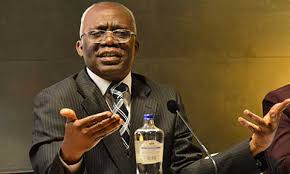

Nigeria: Human rights lawyer accuses govt of acting World Bank, IMF script on electricity tariffs hike
Nigerian human rights lawyer and advocate, Femi Falana, has accused the President Bola Tinubu government of acting out a script...


Wizkid, Davido’s online battle gets nasty as they exchange ‘dirty’ tweets
The online battle between two of Nigeria’s biggest music stars, Ayodeji Balogun, aka Wizkid, and David Adedeji, popularly known as...
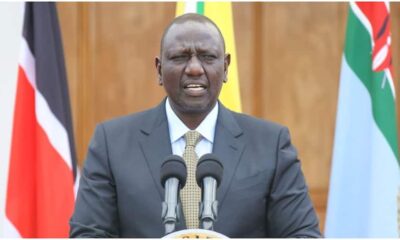

African leaders want record World Bank financing to address climate change
Ahead of a World Bank conference scheduled for later this year, African leaders on Monday called for rich countries to...


Conservationist, Kearns, names intolerance and digital media abuse as threats to media freedom
Nsama Kearns, the Executive Director of Care for Nature, speaks on the indispensable role of a free media in society....
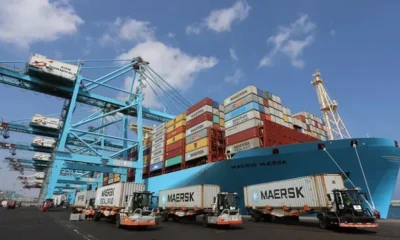

Nigeria gets $600 million investment from Danish firm Moller-Maersk
Nigeria’s presidency said on Sunday that President Bola Tinubu had secured an investment of $600 million from Danish shipping and...


Bolt Kenya teams up with M-KOPA to launch electric motorcycles
In a bid to improve driver earnings and combat climate change, ride-hailing platform, Bolt Kenya, has struck a partnership with...
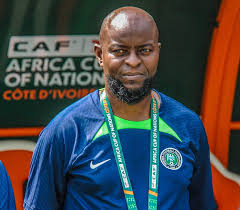

Nigeria’s football federation appoints Finidi George as Super Eagles coach
The Nigeria Football Federation (NFF) has approved the appointment of former international, Finidi George, as the new head coach of...
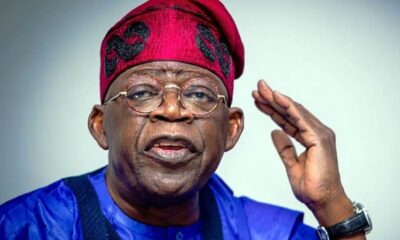

I saved Nigeria from bankruptcy by removing fuel subsidy— Tinubu
Nigerian President, Bola Tinubu, on Sunday, boasted that he saved Nigeria from going bankrupt by removing fuel subsidy on his...


Behind the News: All the backstories to our major news this week
Over the past week, there were lots of important stories from around the African continent, and we served you some...
Trending
-

 Tech2 days ago
Tech2 days agoBolt Kenya teams up with M-KOPA to launch electric motorcycles
-

 Metro1 day ago
Metro1 day agoConservationist, Kearns, names intolerance and digital media abuse as threats to media freedom
-

 Sports2 days ago
Sports2 days agoNigeria’s football federation appoints Finidi George as Super Eagles coach
-

 Metro2 days ago
Metro2 days agoI saved Nigeria from bankruptcy by removing fuel subsidy— Tinubu


